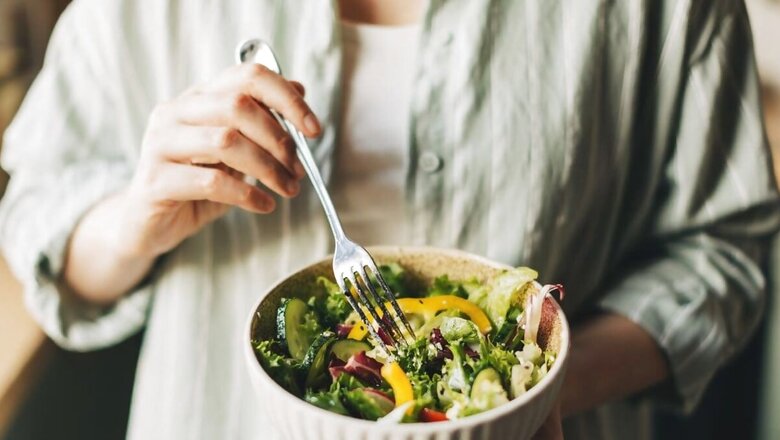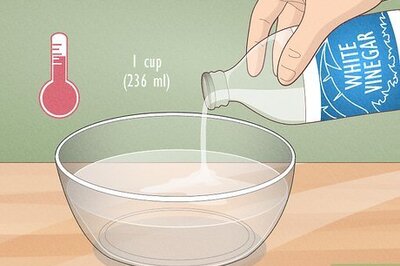
views
Endometriosis, a condition affecting millions of women worldwide, can be incredibly challenging to manage. While medical treatments are essential, diet can play a crucial role in alleviating symptoms to a certain extent and supporting overall health. As a gynaecologist, I’ve come to appreciate the power of nutrition in managing this condition. Here are five nutritional powerhouses that I recommend incorporating into an endometriosis-friendly diet:
Fatty Fish or Fish oil supplements
Omega-3 fatty acids are nature’s anti-inflammatories, and fatty fish are packed with them. Salmon, mackerel, sardines, and anchovies are excellent choices. These fish not only provide omega-3s but also offer high-quality protein and vitamin D. The anti-inflammatory properties of omega-3s can help reduce the pain and inflammation associated with endometriosis. Aim for at least two servings of fatty fish per week. If you’re not a fan of fish, consider a high-quality fish oil supplement after consulting with your healthcare provider.
Leafy Greens
Dark, leafy greens like kale, spinach, and collard greens are nutritional superstars. They’re rich in iron, which is crucial for women with endometriosis who may be at risk of anaemia due to heavy menstrual bleeding. These greens are also high in fibre, which can help balance oestrogen levels in the body. Additionally, they contain antioxidants and vitamins that support overall health. Try to include a serving of leafy greens in at least one meal per day, whether it’s in a salad, smoothie, or as a side dish.
Berries
Berries, particularly blueberries, strawberries, and raspberries, are packed with antioxidants called anthocyanins. These compounds have potent anti-inflammatory properties that can help combat the inflammation associated with endometriosis. Berries are also high in vitamin C, which supports immune function and helps with iron absorption. They’re low in sugar compared to many other fruits, making them an excellent choice for maintaining stable blood sugar levels. Enjoy a handful of mixed berries as a snack or add them to your breakfast for a nutritious boost.
Turmeric
This vibrant yellow spice has been used in traditional medicine for centuries, and modern research supports its antioxidant properties. Curcumin, the active compound in turmeric, has been shown to have pain-relieving effects comparable to some over-the-counter medications. It may also help reduce the growth of endometrial tissue. While it’s challenging to consume therapeutic amounts of turmeric through diet alone, including it regularly in your cooking can be beneficial. Consider adding it to smoothies, curries, or try golden milk – a warm, comforting drink made with turmeric and plant-based milk.
Legumes
Beans, lentils, and chickpeas are excellent sources of protein, fibre, and various vitamins and minerals. They’re also rich in phytooestrogens, plant compounds that can help balance oestrogen levels in the body. This is particularly important for women with endometriosis, as the condition is estrogen-dependent. Legumes also provide a steady source of energy and can help stabilise blood sugar levels, which is crucial for managing inflammation. Try to include a serving of legumes in your diet at least three times a week, whether it’s in a soup, salad, or as a side dish.
Remember, while these foods can be incredibly beneficial, they’re not a substitute for medical treatment. Always consult with your healthcare provider before making significant changes to your diet, especially if you’re on medication or have other health conditions. Incorporating these nutritional powerhouses into your diet can be a delicious and empowering way to support your body in managing endometriosis. As with any dietary changes, consistency is key. Give your body time to adjust and reap the benefits of these nutrient-dense foods.
(Inputs by Dr. Tejal Kanwar, Gynaecologist & Consultant at Ujaas (A menstrual health and hygiene management social enterprise))



















Comments
0 comment